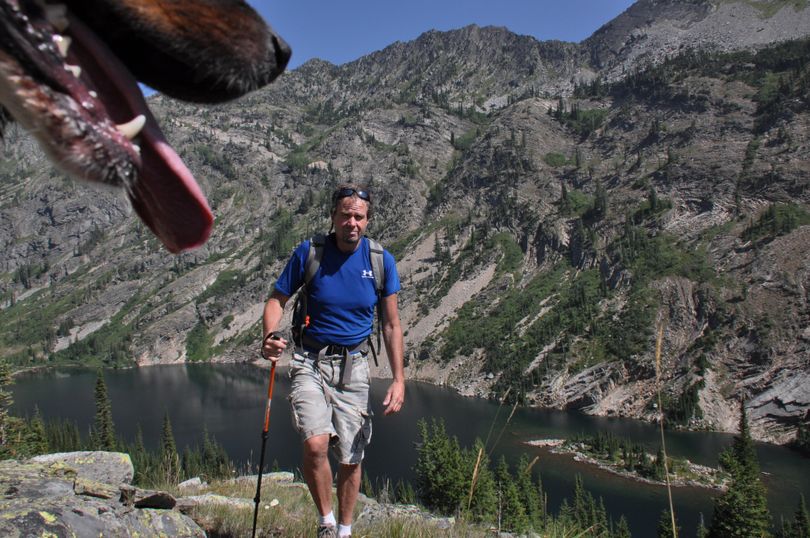Court ruling sets back Montanore mine under Cabinet Mountains Wilderness

WILDERNESS -- Some government agency approvals for a proposed Hecla mine that would drill under the Cabinet Mountains Wilderness were overturned Tuesday by a federal judge in Missoula
Conservation groups have been challenging government decisions that favored developing the Montanore Mine on the grounds that they would degrade wilderness trout streams and industrialize some of the last remaining grizzly bear habitat in the Cabinet Mountains of northwestern Montana.
In two decisions, U.S. District Judge Donald Molloy ruled that the U.S. Fish and Wildlife Service and U.S. Forest Service violated the Endangered Species Act, the Clean Water Act, the National Forest Management Act and the National Environmental Policy Act by approving an industrial mining operation on the boundary of the wilderness, according to a news release by the conservation groups. The drilling would go underground within the wilderness boundaries.
"We are disappointed, but not deterred with the court's ruling," said Luke Russell, Hecla Mining's vice president for public affairs when contacted today. "We'll digest the numerous pages of the ruling and then be in discussions with the agencies to address the findings.
"Our initial read is that these issues can be addressed and that we can come back and move the projects forward" through the evaluation phase.
"Hecla has no approval for any stage of the mine," said Mary Costello of Save Our Cabinets. "If they attempt to proceed with the evaluation adit, we will oppose them in court."
Decisions issued in 2014 and 2016 by the U.S. Fish and Wildlife Service and U.S. Forest Service approved development of the mine, dismissing conservation groups' arguments that the mine, especially in combination with another proposed mine, would dewater streams, dump waste water that would be too warm for bull trout to tolerate and increase the potential for grizzly bear losses to poaching and human activity.
"Yesterday’s court rulings invalidate those approvals, concluding, among other things, that the Forest Service’s action 'puts the proverbial cart before the horse' in approving mine development despite prohibited impacts to wilderness waters," says Earthjustice lawyer Katherine O’Brien.
“This decision sends an important signal to permitting agencies and to Hecla Mining Co. that you need to get it right when it comes to water,” said Karen Knudsen, executive director of the Clark Fork Coalition. “Permanently drying up pristine wilderness streams is not getting it right, and we’re glad that the court agreed.”
Other groups involved in the lawsuits include Western Mining Action Project, Earthworks and Defender of Wildlife.
Following is an Associated Press report on the rulings:
HELENA, Mont. (AP) – The U.S. Forest Service and the U.S. Fish and Wildlife Service violated laws meant to protect threatened species and their habitat in approving the development of a copper and silver mine under a wilderness area in Montana, a federal judge has ruled.
U.S. District Judge Donald Molloy on Tuesday ruled the agencies would have to reconsider their findings related to the Montanore Mine in the Kootenai National Forest about 18 miles south of Libby.
Molloy said the project is expected to reduce stream flows for threatened bull trout and increase the potential for human interactions with threatened grizzly bears, and it made no sense for the wildlife service to say the project would not harm those species.
The Forest Service violated the Endangered Species Act in relying on those flawed biological opinions in granting permission to develop the mine, Molloy wrote.
Willie Sykes, a public information officer with the Kootenai National Forest, said the agency was reviewing Molloy’s decision and could not yet comment.
“Yesterday’s ruling underscores how wrong it is to site major industrial facilities on the doorstep of public wilderness lands that provide irreplaceable habitat for imperiled wildlife,” Earthjustice lawyer Katherine O’Brien said in a statement Wednesday.
She represented several conservation groups who challenged the approvals for the mine.
The Montanore Mine, proposed by Coeur d’Alene, Idaho-based Hecla, sought to mine ore underneath the Cabinet Mountains Wilderness by accessing the underground deposit from land just outside the wilderness area.
The agencies approved the mine despite decisions that acknowledged impacts including lowered stream flows that would make bull trout spawning areas unreachable and dumping wastewater into the stream that is too warm for the threatened fish, the conservation groups argued.
The wildlife services’ biological opinion concluded the mine would lead to the death of one grizzly bear over a 30-year period and that mitigation efforts planned by Hecla would more than offset that death, but Molloy found the agency had no precise data to make such a statement.
Officials with Hecla did not return a phone call seeking comment, but company officials have said they have spent about $46 million to bring the project into compliance with new mining regulations. The mine would create an estimated 350 permanent jobs.
Glenn Dobbs with Mines Management, which was acquired by Hecla, has said the Montanore Mine would be “environmentally benign” and said the lawsuits raised alarm over worst-case scenarios that are unlikely to happen.
In a separate but related complaint, Molloy also found approvals for the project violated the Clean Water Act, the National Forest Management Act and the National Environmental Policy Act.
